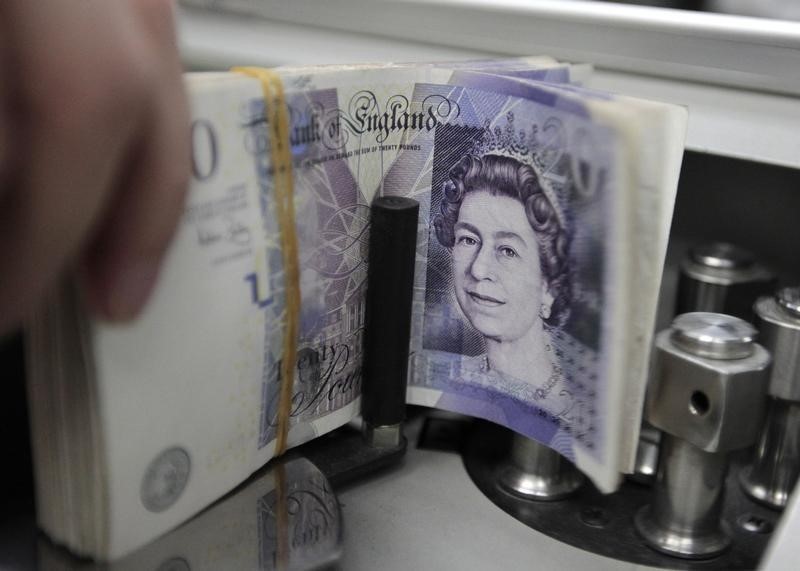Investing.com - The pound ended the week close to eight-month peaks against the dollar on Friday as investors pushed back expectations for higher U.S. interest rates and concerns over the Greek debt crisis boosted safe haven demand for sterling.
GBP/USD was last at 1.5887 late Friday, holding just below the previous session’s highs of 1.5929, the most since November 12. The pair ended the week up 2.07%.
The greenback came under pressure after the Federal Reserve lowered both its U.S. growth forecast and its interest-rate projections on Wednesday, prompting investors to push back expectations on the timing of an initial rate hike.
Fed Chair Janet Yellen said the central bank wanted to see “more decisive evidence” of sustained growth before raising rates, but acknowledged that the economy has “expanded moderately” after a weak first quarter.
The U.S. dollar index, which measures the greenback’s strength against a trade-weighted basket of six major currencies, fell to a five-week low of 93.30 on Thursday, before recovering to end at 94.32 by late Friday.
The index still ended the week down 1.02%, the third straight weekly decline.
Demand for the pound was also boosted as a deadlock between Athens and its international lenders continued ahead of the approaching deadline for Greece’s repayments to the International Monetary Fund at the end of the month.
A default by Greece could lead to the country’s exit from the euro zone.
Europe wants Greece to make spending cuts in order to secure a deal that will unlock €7.2 billion in bailout funds and prevent Athens defaulting on its debts when its bailout expires at the end of the month.
On Friday the European Central Bank extended extra emergency liquidity to Greek lenders as outflows from banks continued.
In the U.K., data on Friday showed that the budget deficit fell to a smaller than forecast £10.1 billion in May from £12.4 billion a year earlier, as income tax revenue climbed.
Sterling hit one-month highs against the euro on Friday, with EUR/GBP falling to 0.7126, before pulling back to 0.7148 in late trade.
In the week ahead, euro zone ministers are to hold talks in Brussels on Monday to discuss the crisis in Greece.
The euro zone is to release data on private sector growth on Tuesday, while the week will also bring what will be closely watched reports on the U.S. factory and housing sectors.
Ahead of the coming week, Investing.com has compiled a list of these and other significant events likely to affect the markets.
Monday, June 22
The U.S. is to release private sector data on existing home sales.
European leaders are to hold emergency talks in Brussels about Greece’s bailout agreement, which is due to expire on June 30.
Tuesday, June 23
The U.S. is to release reports on durable goods orders, manufacturing activity and new home sales.
Wednesday, June 24
The U.S. is to release revised data on first quarter economic growth.
Thursday, June 25
The U.S. is to release the weekly report on initial jobless claims as well as data on consumer spending.
Friday, June 26
Bank of England Governor Mark Carney is to speak at an event in London.
The U.S. is to round up the week with revised data on consumer spending.
